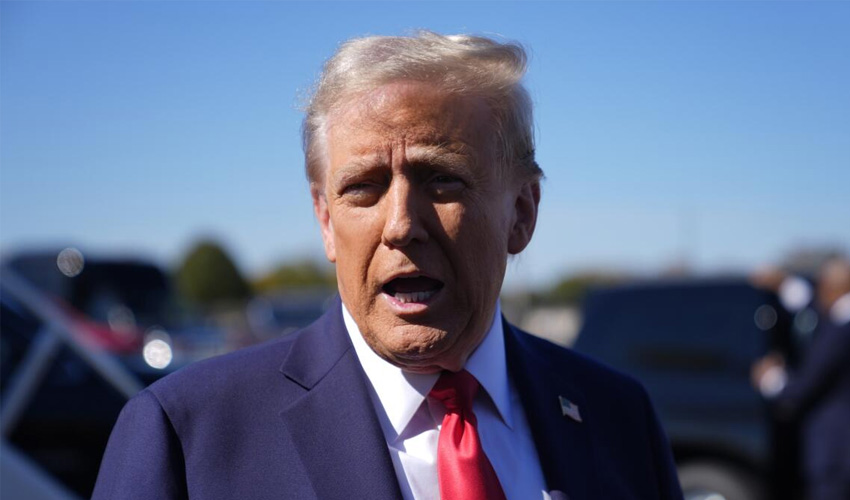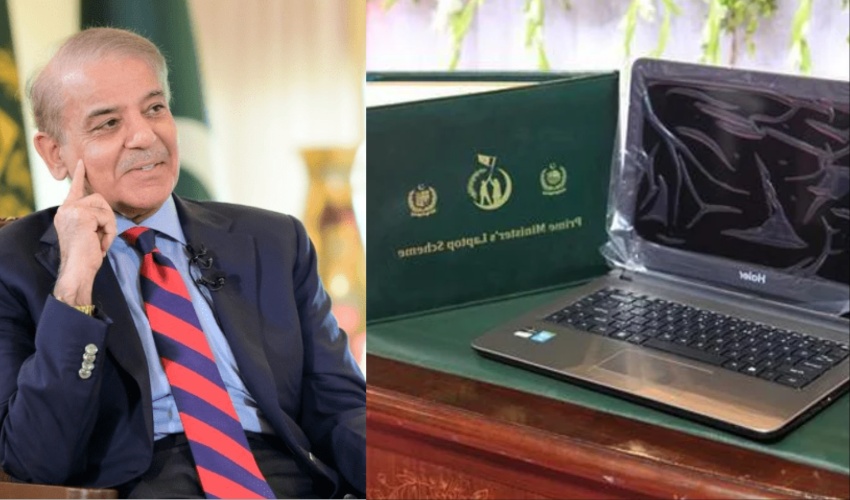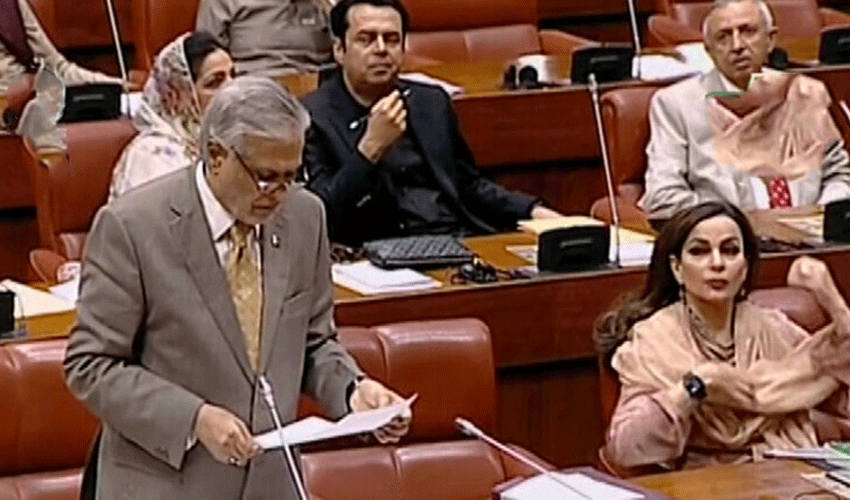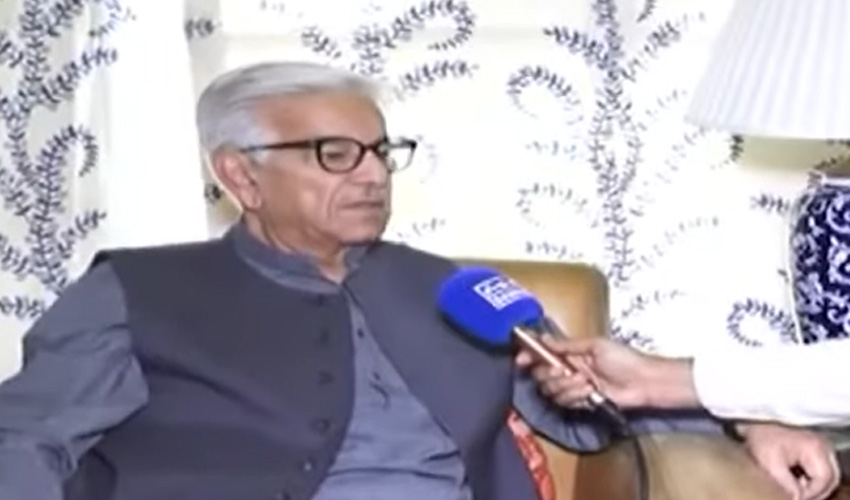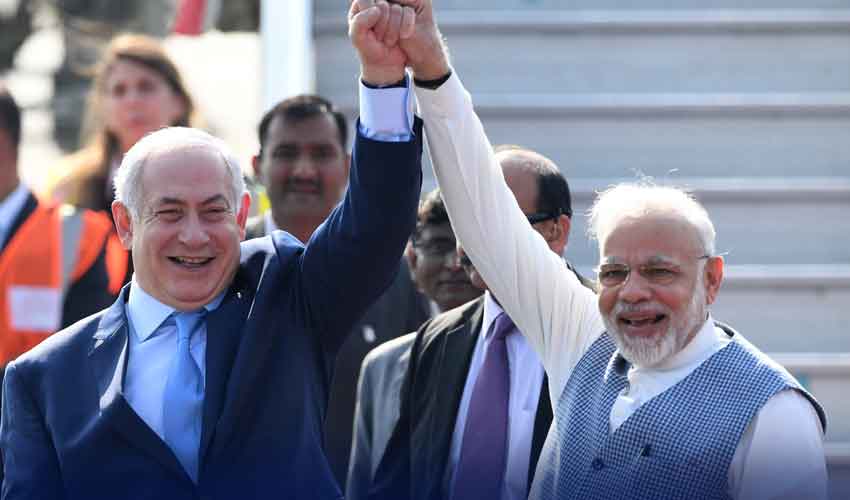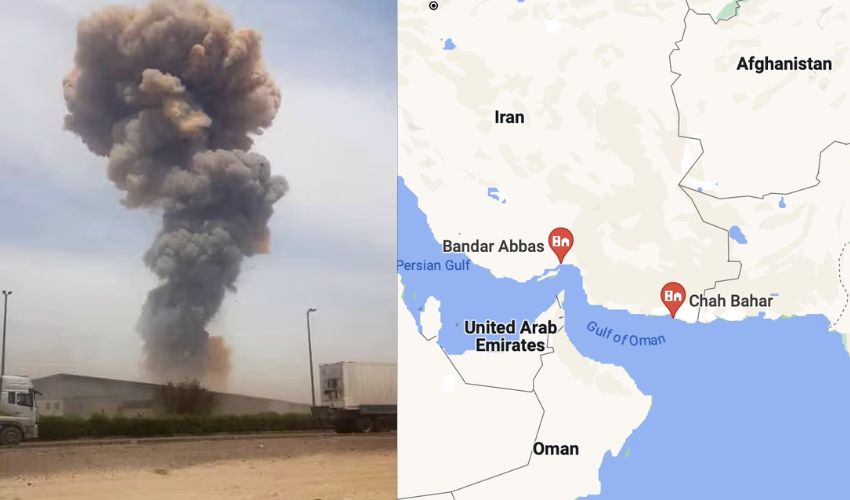US trading partners braced on Tuesday for the expected announcement of a fresh wave of tariffs by US President Donald Trump, who vowed to address what he claims are unfair trade imbalances with a "kind" approach.
Trump, making unprecedented use of his presidential powers, hinted that the tariffs could be revealed as early as Tuesday night.
During a press conference on Monday, Trump stated: "You're going to see in two days, which is maybe tomorrow night or probably Wednesday." He reassured, "We're going to be very nice, relatively speaking, we're going to be very kind," despite his firm stance on the issue.
The Republican billionaire remained adamant that action was necessary, asserting that the US, as the world's largest economy, had been "ripped off by every country in the world." He also promised a "Liberation Day" for the United States, a term he has frequently used to describe his vision of reshaping global trade dynamics.
Critics warned that the planned tariffs could spark a global trade war, with countries like China, Canada, and the European Union potentially retaliating. Over the weekend, China, South Korea, and Japan had come together to strengthen free trade among themselves. However, Trump dismissed concerns that his tariffs would push these countries closer to China, suggesting that a deal on the TikTok app could also be linked to the China tariffs.
White House Press Secretary Karoline Leavitt confirmed that the administration's goal was to announce "country-based tariffs" on Wednesday, although Trump’s commitment to imposing sector-specific levies remained intact.
The uncertainty surrounding the announcement caused turbulence in global markets, with equities plummeting. Asian stocks, which had sharply dropped on Monday after Trump’s comment that tariffs would affect "all countries," showed signs of recovery on Tuesday. The Wall Street Journal reported that advisers had considered imposing global tariffs of up to 20 percent, targeting nearly all of the US’s trading partners. Trump, however, kept the details vague, promising that the new tariffs would be "far more generous" than those already levied against US products.
Trump's focus on tariffs is contributing to growing concerns over a potential US recession. Goldman Sachs analysts raised the probability of a 12-month recession from 20 percent to 35 percent, citing a "lower growth forecast, falling confidence, and statements from White House officials indicating willingness to tolerate economic pain." The bank also updated its inflation forecast for 2025.
In response, China and Canada have already imposed counter-tariffs on US goods, while the EU revealed plans for retaliatory measures to begin in mid-April. The global impact of Trump’s tariffs remained uncertain, with IMF chief Kristalina Georgieva stating that while they caused anxiety, their economic consequences were not expected to be catastrophic.
Oxford Economics' Ryan Sweet advised to "expect the unexpected," suggesting that Trump would likely target some of the largest offenders in global trade. Alongside country-based tariffs, Trump was expected to unveil sector-specific levies, including potential charges on pharmaceuticals and semiconductors. Additionally, auto tariffs were set to take effect on Thursday.
Economists predicted that Trump’s next moves might target the 15 percent of US trading partners with persistent trade imbalances, a group referred to by US Treasury Secretary Scott Bessent as the "Dirty 15." This group includes China, the EU, Mexico, Vietnam, Taiwan, Japan, South Korea, Canada, and India.
As Trump’s tariffs loomed, US trade partners rushed to minimise their exposure. Vietnam announced it would reduce duties on several goods, including cars and liquefied gas, while Japan planned to open approximately 1,000 consultation centres to assist businesses affected by the tariffs.
On Monday, Mexican Foreign Secretary Juan Ramon de la Fuente spoke with his US counterpart, urging the preservation of free trade agreements between North American countries and addressing the impending 25 percent tariffs on the automobile industry set to take effect on April 3.
European Central Bank President Christine Lagarde highlighted Europe’s vulnerability, describing the situation as an "existential moment" for the region. British Prime Minister Keir Starmer engaged in "productive negotiations" with Trump on a UK-US trade deal, while German Chancellor Olaf Scholz confirmed that the EU would respond firmly to Trump but was open to compromise.
Greta Peisch, a former official at the US Trade Representative’s office, remarked that it was "entirely possible" that the newly proposed tariffs could be quickly reduced or put on hold, recalling previous instances when Washington had delayed tariffs on Mexican and Canadian imports during ongoing negotiations.





